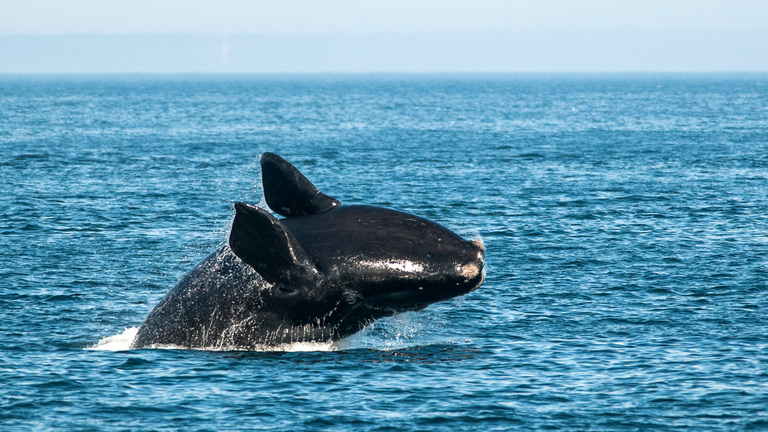The North Atlantic Right Whale, is one of the worlds largest animals. It weighs up to 60 tons and stretches up to 55 feet. The whale is found along the East Coast of the United States and Canada, from the gulf of St. Lawrence , to Florida.
Since 1970, these whales have been classified as endangered, under the Endangered Species Act. The whales were hunted to the brink of extinction during the era of commercial whaling. They have been federally protected for decades.
The North Atlantic Right Whale Consortium is internationally recognized and has been identified as a model for establishing other species-related consortia. The NARWC founded in 1986, is a collaborative organization dedicated to the conservation and recovery of the North Atlantic right whale, one of the most endangered large whale species in the world.
The North Atlantic Right Whale Consortium has declared a growth in population of the Right Whale over the last years. As of now there are 384 Right Whales in the world, which is 8 up from last year. The whales have shown a trend of slow population growth over the past four years and have gained more than 7% of their 2020 population, the consortium said. The population of the whales, which are vulnerable to collisions with ships and entanglement in fishing gear, fell about 25% from 2010 to 2020.
The whales are less likely to reproduce when they have suffered injuries or are underfed, scientists have said. That has emerged as a problem for the whales because they are not producing enough offspring to sustain their population.
However, this year four mother whales had calves for the first time, Hamilton said. And some other established mother whales had shorter intervals between calves, he said.
In total, 11 calves were born, which is less than researchers had hoped for, but the entry of new females into the reproductive pool is encouraging, Hamilton said. “Any number of calves is helpful in a year of no mortalities,” said Heather Pettis, who leads the right whale research program at Cabot Center and chairs the North Atlantic Right Whale Consortium.
Good news is good news no matter the topic. We may have saved an endangered species!













